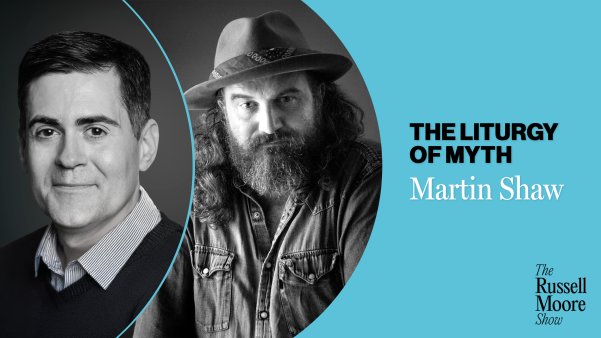When Mary came to visit, Elizabeth's child leaped in her womb. Mary's spirit, too, jumped to a higher plane. In the inspired exchange between the cousins, the pregnant virgin sang a prophetic hymn of praise for God's salvation. In that prophecy, Mary praised God for filling the hungry with good things and sending the rich away empty. We call her hymn the "Magnificat," and we Christians have been singing it as a regular part of worship since about the year 500.
For most of the 1,500 years since, congregations and cloistered monks and nuns chanted the straight, unadorned biblical text of Mary's song. In the latter half of the 20th century, however, musical paraphrases of the Magnificat flourished. One of my favorites is Timothy Dudley-Smith's bold four-square hymn, "Tell Out, My Soul." Others inhabited the folk idiom: Christopher Idle's "My Soul Proclaims the Greatness of the Lord," Rory Cooney's "Canticle of the Turning," and John Michael Talbot's "Holy Is His Name."
As a worship musician who tries to fine-tune what we sing with the Scriptures we read, I have felt frustrated by the way musicians blunt the Magnificat's protest against the 1 percent (to borrow Occupy language). Take Dudley-Smith's otherwise excellent "Tell Out, My Soul" as an example. Five years younger than his Cambridge friend John Stott, Dudley-Smith was part of the circle that renewed English evangelical hymnody midcentury. But in "Tell Out, My Soul," he focused on the first half of Mary's poetic parallelism that contrasted the powerful with the humble and neglected the second half that counterpoised God's treatment of the hungry with the rich. Talbot and Cooney commit the same sin of omission. Idle's text is the refreshing exception.
It is easy to spiritualize power and turn it into pride. Thus Dudley-Smith's rendering: "Proud hearts and stubborn wills are put to flight."
As a worship musician who tries to fine-tune what we sing with the Scriptures we read, I have felt frustrated by the way musicians blunt the Magnificat's protest against the 1 percent.
Now, we know that pride and stubbornness are not the exclusive province of the rich. If the Holy Spirit had wanted to talk about these vicious habits of the heart, he would have inspired Mary along those lines only. But he didn't, fingering the rich along with the powerful. As a Church of England bishop, Dudley-Smith may have thought wealth too delicate a matter for his Scripture song.
It is hard to find Christian hymns that embody Scripture's sharp critique of the rich and the dangers of wealth. There are positive songs about simplicity ("Simple Gifts") and exhortations not to cling to earthly goods (the German Lutheran chorales "A Mighty Fortress" and "Jesus, Priceless Treasure"), but not much on the actual dangers of wealth.
Scripture's sharp-edged message about the danger of wealth is not restricted to the Magnificat. One of my favorite gospel songs adapts Jesus' story of the rich man and Lazarus—"Rusty Old Halo" by Hoyt Axton. Unfortunately, Axton of "Joy to the World (Jeremiah Was a Bullfrog)" fame blunted the parable by reducing the fires of hell to "a rusty old halo, skinny white cloud, robe that's so wooly it scratches."
There's a refreshingly unusual folk ballad on Keith and Kristyn Getty's new album, Hymns for the Christian Life. Think of "Simple Living" as the musical equivalent of Shane Claiborne and Tony Campolo's Red Letter Revolution. Unlike Axton's soft-pedaling, the Getty-Stuart Townend songwriting team gives Jesus' dialogue with the rich young ruler a transparent treatment. They hone the sharp edge of Jesus' advice: "Sell all you have; give to the poor. / Then heaven's treasure shall be yours." Francis of Assisi couldn't have said it more pointedly.
The last lines of the song's first verse are also close to Jesus' original: "How hard for those who are rich on earth / To gain the wealth of heaven." The second verse focuses on the widow's mite story. It concludes, "Not what you give but what you keep / Is what the King is counting."
Keith recently told me that with this album he wanted to join worship to everyday life. Thus it addresses work, suffering, community, family, doubt—and money. "A more quotidian approach to theology," he calls it. Props to the Gettys and Townend for giving us lyrics that present Jesus' message unbated.
I don't want to argue here about what Jesus meant in his criticism of mammon and his threats toward the rich. That's a debate for a different space. But however you interpret those statements, they are harsh and wounding. Keith says that he wants to make us traditionalists uncomfortable with songs like this.
Those who paraphrase Scripture have a special duty to let it speak with its proper force. Add a good tune, and you've fortified those words to shape our lives.










